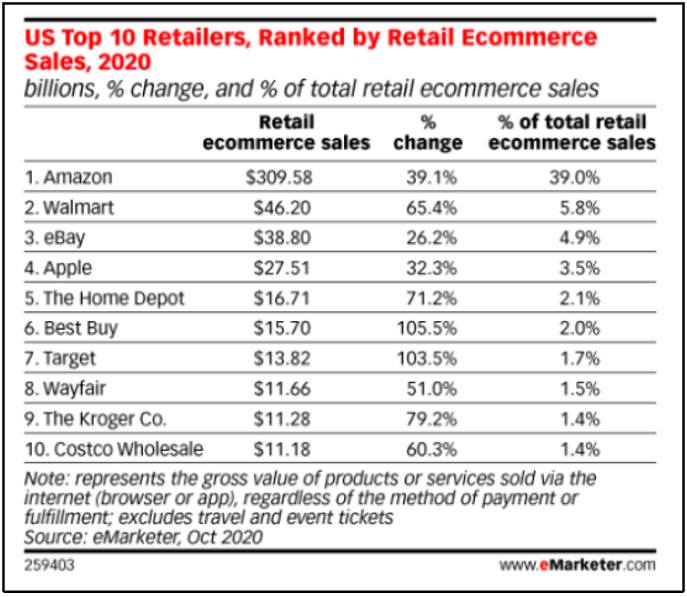One of the timeless investment debates has been to definitively determine which investment strategy is superior – value or growth? Growth investing is largely attributed to Thomas Rowe Price, Jr., who established his fund in 1950 and is known as the father of growth investing. Other notable managers considered pioneers in the space are Phillip Fisher (author of Common Stocks and Uncommon Profits), and Peter Lynch (manager of the legendary Magellan Fund). The father of value investing, on the other hand, is Benjamin Graham, a prolific thought leader who authored seminal books on the subject including Security Analysis and The Intelligent Investor in the 1930s and 1940s. Warren Buffet, perhaps the most famous investor of all-time, is an ardent proponent of the value-style to this day.
Assessing which approach is superior can be a difficult exercise as the strategies can underperform and outperform each other during different time periods and economic regimes. Post financial crisis and even after COVID-19 struck, for example, growth investing enjoyed strong performance as its heavy weighting in technology drove strength and the low interest rate environment flattered valuations. Most recently, however, value investing has seen a strong resurgence in 2021 as the economy reopens and inflationary pressures rear its head.
Whether this run will continue is the topic du jour in investment circles. We asked some expert fund managers for their opinions on the value versus growth debate. Here is what we learned:
Steven Gorelik, Firebird US Value Fund
As I think of the “Growth vs. Value” debate, a recent conversation with a colleague from a well-known Value Fund comes to mind. He told me about an internal discussion where one of the analysts said that Amazon is trading at 15x 2023 EBITDA. While this particular fund has an institutional aversion to purchasing any company at double-digit EBITDA valuation, my colleague asked a question – “How much would you want to bet that at least one of the companies we own today also trades at 15x 2023 EBITDA?!”
In the most fundamental definition, “Value” investing is a bet that a company’s past performance is a good predictor of future results. On the other hand, “Growth” investing is a bet that the company will successfully execute, take advantage of an opportunity set, and beat a number of both existing and potential competitors vying for the same opportunity. Both Value and Growth companies face a set of challenges and uncertainties, and our job as professional investors is to figure out which firms are in a better position to succeed.
The historical data from Fama-French studies shows that Value Companies have outperformed Growth by ~4% p.a. since 1927. The long-term outperformance holds despite the last four years when growth outperformed value by almost 20% p.a. We feel that two factors primarily explain excess returns:
- Investors buying Value companies are paying less for the same hypothetical opportunity set available to both incumbents and challengers in a particular industry
- Incumbents in transitioning industries, while suffering from institutional inefficiencies and complacency, do have existing infrastructure that gives them a competitive advantage against new challengers
A case in point is brick and mortar retailers and how they adapt to the challenges from online retailers. Last year, with COVID wreaking havoc on the economy, e-commerce sales accelerated. Revenues of online retailers exploded, but so did online sales of retailers with existing physical locations. Out of the top 10 online retailers, seven started as brick-and-mortar stores, and all of them delivered higher 2020 online sales growth than online-only players.

In 2020, online-first retailers found themselves with an addressable market temporarily inflated by lockdowns but also more capable competitors that had no choice but to learn how to sell on the web. Looking forward, online-only retailers finding themselves at a strategic disadvantage with brick-and-mortar competitors offering in-store returns, exchanges, advisory, and other services.
Growth vs. Value investing should not be a question of betting on the old or the new, but instead an analysis of which companies have the best chance of success. Whenever we face periods of technological change, incumbent companies are often written off as dinosaurs unable to compete. While undoubtedly many firms fall prey to new challenges, the best companies adapt to the new realities, learn from the challengers, and come out better prepared to take advantage of new opportunities.
Edward Chang, Pledge Capital
No one wants to be the greater fool. We are taught by Ben Graham not to buy into Mr. Market’s manic episodes and chase performance. His maxims are right, but anything good can be taken too far. You cannot simply stop at this adage. You need to learn when to apply it and when not to. Like the exceptional investor who spawned this rule, there are companies that are also exceptions. Investors spend too much time on easily obtainable numbers, without deeply considering the next five, seven or even ten years. Ignoring growth when assessing value, is like investing near sighted without the benefit of prescription glasses. Of course, this is a gross over-simplification because writing down what others will eventually consider commonly accepted wisdom is extremely hard. It is not always obvious which companies will prove to be exceptional. It is easier to learn from great investors, who will help you understand their hard-earned vision.
The growth versus value debate is a moot argument. We love finding growth stocks at half of book or half of replacement value. Two of our most successful multi-bagger investments in the last year fit that exact category. But both had hidden growth stories, that helped propel them to 4x+ returns in less than a year. You cannot triangulate value without studying growth. They are intermixed like “Ying and Yang”. The danger is over extrapolating growth. A few companies are responsible for most long-term stock market gains, but few are truly exceptional. Even extraordinary companies get too expensive and encourage profit-taking, while fundamentals catch up to perception. While over extrapolating growth is dangerous and can cause 50-75% losses, the real danger is under-estimating the long-term prospects of an exceptional business which increases 5x, 10x, or more.
Philip Fisher, once said “even more billions have been lost as investors have sold out, at the wrong time and for the wrong reasons, shares they had every reason to hold and which, if held, would have become extremely profitable as long-range investments.” Even Graham recognized the growth potential of Geico decades ago. Today, Fisher’s words are more relevant than ever. It is easier than ever to access scuttlebutt information. An emerging fund manager like me has access to libraries of expert industry interviews. We even conduct these calls on behalf of large institutions. We all have access to a wealth of information available over the web. All three greatly democratizes our access to information, which help form the insights we need to succeed. It is also now easier than ever to network, share, discuss, and learn from smart investors and industry experts in every corner of the world. Anyone with access to Google Sheets or Microsoft Excel, can also consider long-term possibilities; and try to reach conclusions that exceptional investors used to reach in their head or on the back of an envelope. It is possible that the best investment you make in a year or even over a multi-year period, is in a stock at an all-time high. You just need to possess the right insights, the stomach, and the patience; or know someone that checks all the boxes.
Caution and skepticism are understandable. No one wants to be the greater fool and buy high just to see Mr. Market change his mind. Many that classify themselves as “value investors” are wary of paying up for growth. After years underperforming “growth investors,” many “value investors” are now predicting a shift back to value. There have been pockets of extreme excess. SPACs were clearly in a bubble. We have warned our partners and friends of these dangers. We are not involved in many of these super high price-to-sales stocks, but we are not sure traditional value stocks will beat them long-term either. It may be fashionable to make fun of Ark Innovation right now as investors celebrating the surge in low-PE commodity stocks. We are not involved in either group of stocks – the high-priced stocks trading at 10-40x+ sales or the commodity stocks trading at a low-PE – but we are excited to see which group will go the distance over the next 5, 7, and 10-years.
Disclaimer
The information and statistical data contained herein have been obtained from sources, which we believe to be reliable, but in no way are warranted by us to accuracy or completeness. We do not undertake to advise you as to any change in figures or our views. This is not a solicitation of any order to buy or sell. We, any officer, or any member of their families, may have a position in and may from time to time purchase or sell any of the above mentioned or related securities. Past results are no guarantee of future results.
This report includes candid statements and observations regarding investment strategies, individual securities, and economic and market conditions; however, there is no guarantee that these statements, opinions, or forecasts will prove to be correct. These comments may also include the expression of opinions that are speculative in nature and should not be relied on as statements of fact.
Pledge Capital is committed to communicating with our investment partners as candidly as possible because we believe our investors benefit from understanding our investment philosophy, investment process, stock selection methodology and investor temperament. Our views and opinions include “forward-looking statements” which may or may not be accurate over the long term. You should not place undue reliance on forward-looking statements, which are current as of the date of this report. We disclaim any obligation to update or alter any forward-looking statements, whether because of new information, future events or otherwise. While we believe we have a reasonable basis for our appraisals and we have confidence in our opinions, actual results may differ materially from those we anticipate.
The information provided in this material should not be considered a recommendation to buy, sell or hold any particular security.
About
Steven Gorelik
Steve Gorelik joined Firebird in 2005. In addition to lead managing Firebird U.S. Value Fund, he also acts as co-portfolio manager of Firebird’s Eastern European Funds and Firebird Private Equity Advisors. In his investment process, Steve focuses on business sustainability analysis of Firebird’s portfolio holdings across a variety of industries and geographies.
Prior to joining Firebird, Steve was an operational strategy consultant with Deloitte. Steve is a graduate of Carnegie Mellon University and Columbia Graduate School of Business, where he completed the highly selective Applied Value Investing program. Steve is a CFA (chartered financial analyst) charter holder and a member of Beta Gamma Sigma honor society.
Edward Chang
Edward is the founder and portfolio manager of Pledge Capital, a boutique investment firm that manages money on behalf of high-net-worth individuals. He employs a research-intensive strategy to identify under-valued growth stocks, which are transforming their business model and/or their industry. He looks for companies on the right side of change and has delivered a strong five-year track record of outperformance. He is an optimist at heart and believes businesses are creating positive change that will also create strong returns for shareholders. He is a graduate of NYU’s Stern School of Business. Prior to founding Pledge Capital, Edward worked at UBS Securities covering restaurant stocks.







